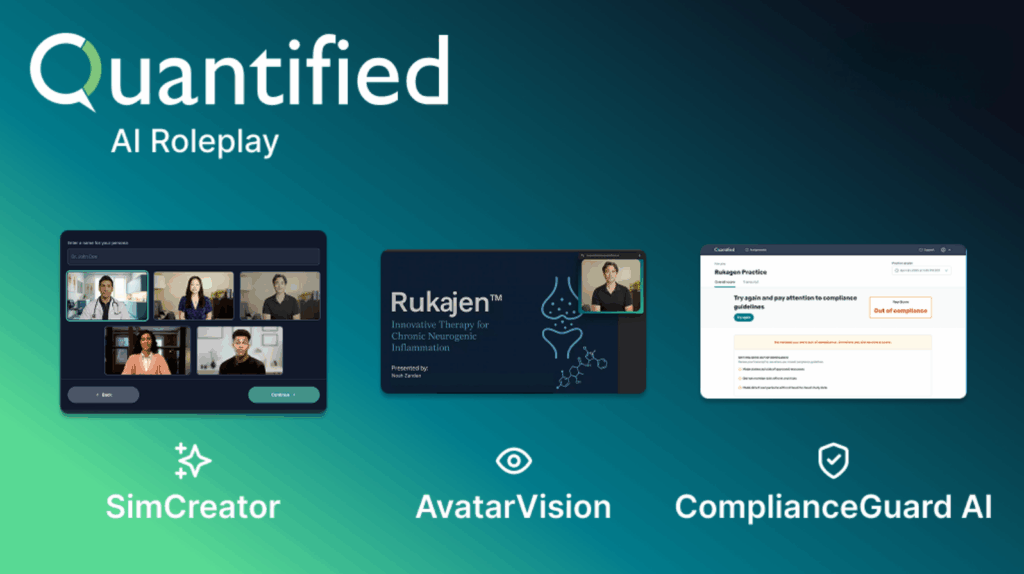Pharma teams often headline AI as the future of training, but too many implementations simply replicate old tech with new buzz. These five myths keep countless of pharma reps locked in knowledge loops, not practical skill development:
- Myth #1: “Gamification = Behavior Change.”
Leaderboards and badges are a fun hook for initial engagement, but shiny objects rarely incentivize sustained improvement. Instead, the quality of training and ease of experience make all the difference. Roleplay mechanics—such as realistic responses, low latency, and impactful feedback loops—matter. Gamified badges teach surface-level learning, but won’t build real confidence.
- Myth #2: “More Practice = Faster Ramp.”
As we’ve heard a million times—quantity doesn’t always equal quality. High rotation doesn’t equal high impact. Instead, ramp speed comes with targeted practice that mimics real life and provides thorough, actionable feedback. With inconsistent practice, UI lag, or missing feedback, those extra reps just become microlearning moments that fade quickly—so microlearning becomes microduration.
- Myth #3: “Compliance Tools Are Just Checkbox Exercises.”
Legacy LMS tracks completion but not real competency. The pharma industry demands validated, traceable AI assessments, not minimal usage statements.
- Myth #4: “One-size Simulation Fits All.”
Why bother with roleplay that doesn’t mimic the nuances of a real-world interaction for each and every sales rep? Pharma-specific customizations, including product and disease state details, access strategies, and competitive objection handling, are table stakes for an impactful simulator experience. Otherwise, ‘generic’ AI coaching can cause more harm than good, and leads to reps losing interest in and patience with AI entirely.
- Myth #5: “It’s too early for large-scale AI deployment.”
Novartis, Bayer, and Sanofi deployed across hundreds of reps last year, demonstrating both readiness for adoption and maturity of the tech. Strategic rollouts and thoughtful change management are key, but are not hurdles to be feared, merely navigated.
Framework shift: AI in pharma must be realistic, compliant, tailored, high-fidelity, and already proven. Anything less risks generating noise, not change.
LTEN 2025 marked a turning point. The conversation shifted from if AI roleplay belongs in pharma to how it should be done at scale—realistic, compliant, rapid, and proven across therapeutic areas. The demand is clear, and meeting it requires technology that delivers on all four fronts. That’s exactly where we can help.
Start with the LTEN recap, or join a Quantified executive briefing.
